How to write a military or law enforcement resume in 5 steps
From extensive and intense training to gaining field experience, there is a lot that goes into becoming a military or law enforcement professional. Unlike other career paths, this field of work requires you to have completed specific training programs and meet set physical standards to qualify for the job.
In this guide, we will discuss 5 key steps to writing an effective resume as a member of military or law enforcement personnel. Keep reading to learn the following steps:
- Choose a resume format that fits your rank or experience level
- Write a resume summary that captures your professional goals and values
- Include both technical and interpersonal skills to show your range of abilities
- Create a work experience section that emphasizes your accomplishments
- List your education and training credentials properly
Still looking for a job? These 100+ resources will tell you everything you need to get hired fast.
1. Choose a resume format that fits your rank or experience level
When writing your military or law enforcement resume, you need to consider what level of experience and rank you hold.
There are 3 main options for resume formatting:
- Reverse-Chronological: A resume focused almost entirely on work experience. This format is good for professionals of a higher rank (2nd Lieutenant and up) who have multiple years of experience to highlight and describe.
- Functional: The functional resume focuses on education, training, and skills. This format works well for applicants who have recently graduated or completed training and have not yet had the chance to work in formal positions.
- Hybrid: A hybrid resume combines elements of both of the above formats. It spreads the focus more evenly between all sections.
For high-rank positions in the military or law enforcement, you may need to opt for a longer form resume known as the Curriculum Vitae, or CV.
A CV is typically used for job applications in the fields of academia or science. Military careers can cover a wide range of industries – including academic and scientific positions. If you are applying for a role in one of these fields, the CV gives you the best opportunity to fully describe your ranks, awards, recognitions, and experience.
Choose your preferred template and make your resume shine.
2. Write a resume summary that captures your professional goals and values
A resume summary is a brief statement at the beginning of the document that introduces the applicants and their skills to an employer.
While not a required element of a resume, the resume summary can be a powerful tool when used correctly. A well-written summary will hook the attention of the reader – in this case, an employer – and compel them to read the rest of the resume and consider the applicant for the interview stage.
Here is an example of a weak resume summary, followed by a correction and explanation:
Incorrect law enforcement professional summary example
Experience Police Officer seeking a position in a local police department. Recipient of a rookie award in previously held position. Skilled in de-escalation tactics and community building.
Why is this Incorrect?
This example is very vague and offers little valuable insight into the applicant’s skills or accomplishments. By adding more context and detail to this summary, the applicant can create a statement that is much more compelling and reflective of their values.
Corrected law enforcement professional summary example
Hard-Working and Dedicated Police Officer with 2+ years of experience working as a community relations officer. Named the “Rookie of the Year” in 2019 at previously held position for high success rate in de-escalating domestic situations and fostering community in department’s jurisdiction.
Why is this Correct?
This example offers the employer a much higher level of detail, including detailing the applicant’s area of expertise (community relations). Along with listing an award they earned, they provide reason and explanation for how that award was earned.
3. Include both technical and interpersonal skills to show your range of abilities
Working in law enforcement or the military is a highly technical career; however, this does not mean you should overlook your interpersonal abilities on a resume. Interpersonal skills on a resume show you understand the importance of not just knowing how to handle yourself but how to work effectively with others as well.
Below we have listed many examples of both technical and interpersonal skills in the realms of military and law enforcement:
The best law enforcement technical skills for your CV
- Police patrol operations
- De-escalation techniques
- Emergency care & first aid
- Crime prevention
- Bilingualism (Speaking multiple languages is a major advantage for law enforcement, as a translator will not always be readily available.)
Effective law enforcement interpersonal skills
- Empathy
- Adaptability
- Clear verbal communication
- Conflict resolution
- Patience
Military technical skills for your resume
- Physical fitness (Each branch of the military will have its own physical requirements for you to meet to serve out the time determined in your contract. These physical requirements must be the first skill you focus on to earn a career in this field.)
- Specializations (As a military professional, you will likely work in a highly specialized role the higher you climb in the ranks. For example, you may be a combat engineer, in which case your specialized skills listed will differ from that of a company commander.)
- Cadence
- Combat techniques
- Weaponry tactics
Top-notch military interpersonal skills
- Confidence
- Leadership
- Cooperation & collaboration
- Active listening
- Adaptability
4. Create a work experience section that emphasizes your accomplishments
As a military or law enforcement professional, your first and primary goal is protecting the citizens of your county, city, and country. In your work experience section, it is important to reflect your commitment to this goal by highlighting the key responsibilities and accomplishments you’ve had in a position.
Here is an example of a work experience entry from a law enforcement resume
ABC Police Department, Albuquerque, NM
Police Officer
June 2016 to May 2020
- Quickly responded to police station and 911-dispatch calls to emergency situations, including instances of domestic violence, assault, and robbery.
- Worked with local nonprofit to establish a new community watch program, which resulted in a 20% decrease in neighborhood crime over a 12-month period.
- Displayed calm-headed judgment in emergency and life-threatening situations, keeping self and partner safe without the use of extreme force.
5. List your education and training credentials properly
Listing your education and training as a military or law enforcement professional can be tricky, as there are many components to both your education and training.
When including these items on your resume, always be sure to include:
- The name of the degree, rank, license, or other certification you earned
- The name of the school, military base, or other institution you attended
- The date of completion (& date of expiration for certain licenses and certifications)
Additionally, you should include key academic credentials such as if you were a part of a university ROTC (Reserve Officer Training Corps) program or if you attended a police academy. In some cases, you may even want to separate training into its own dedicated section
Here is an example of a well-crafted education section on a military resume
Education
University of Central Florida, Orlando, FL
B.S. in Business & Strategic Intelligence
2014-2018
Military training section example
Training
United States Army
ROTC Cadet
The University of Central Florida, Orlando, FL
- Earned a leadership role as Company Commander (2017-2018)
- Completed 10 credit hours per semester

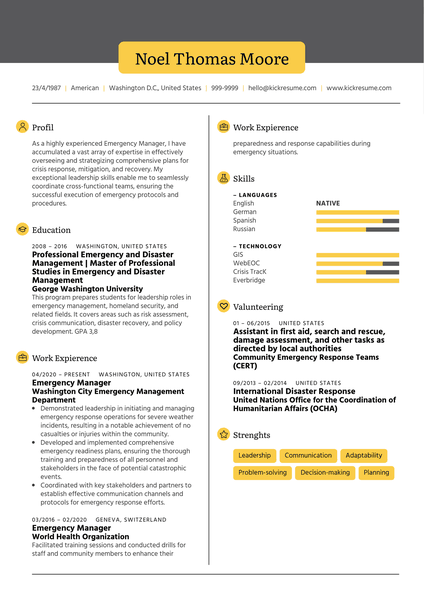
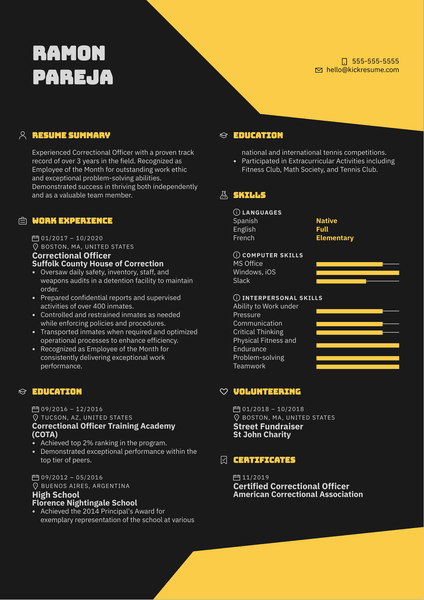

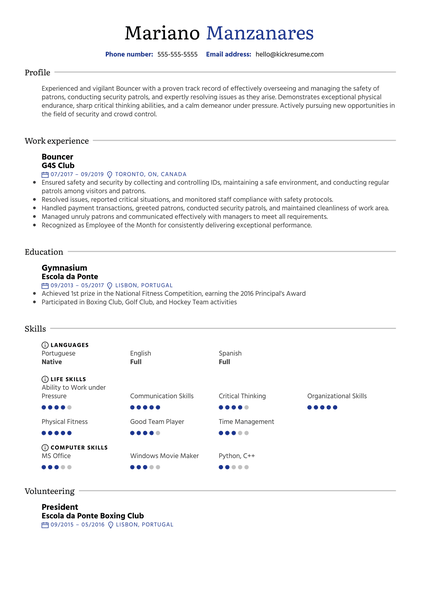

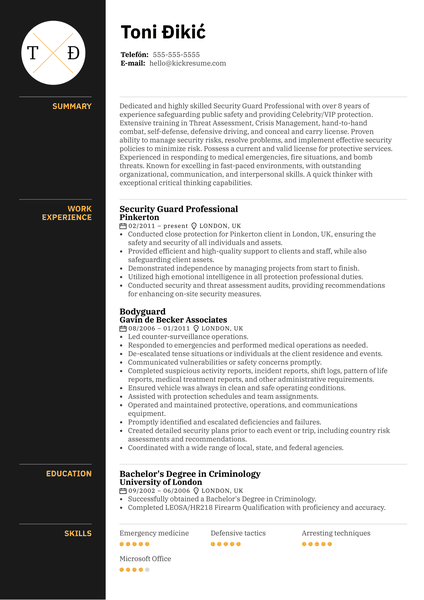
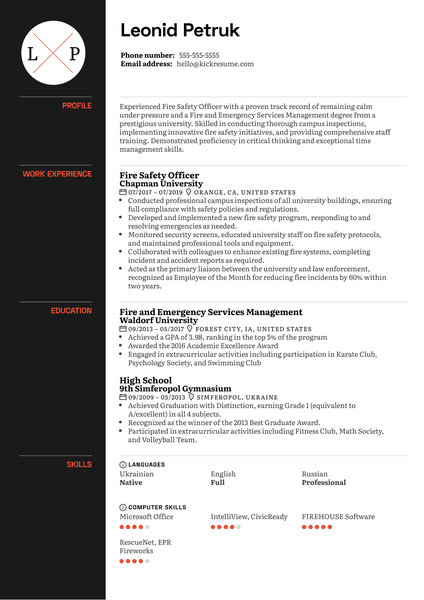
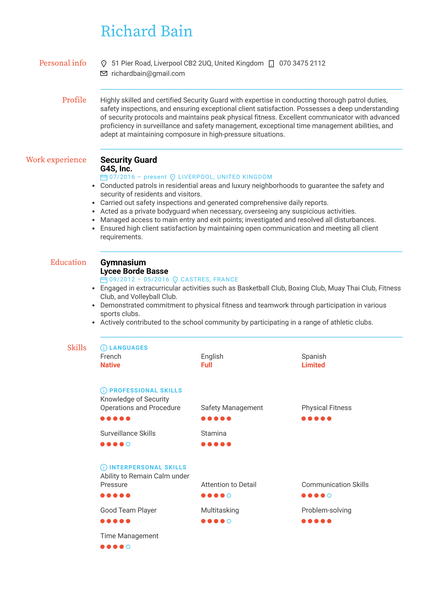


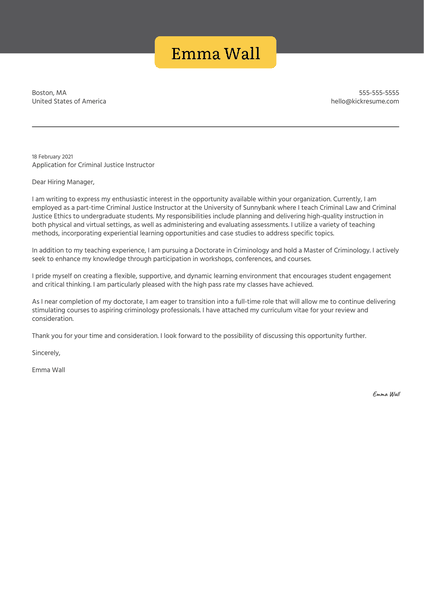
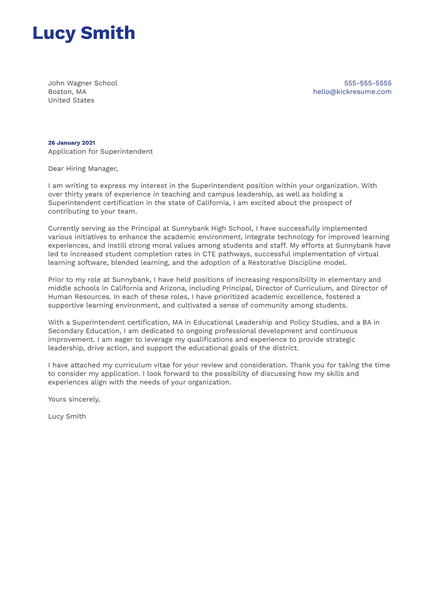
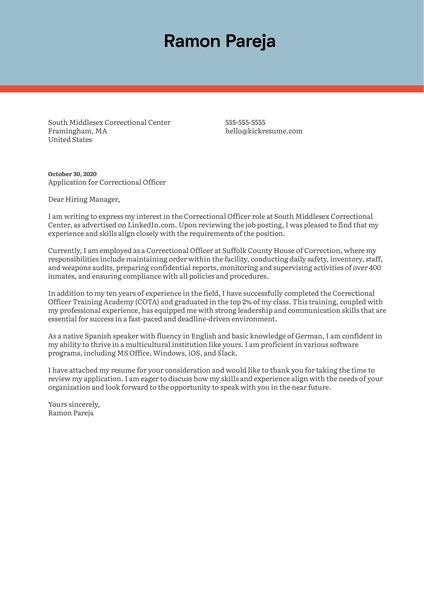
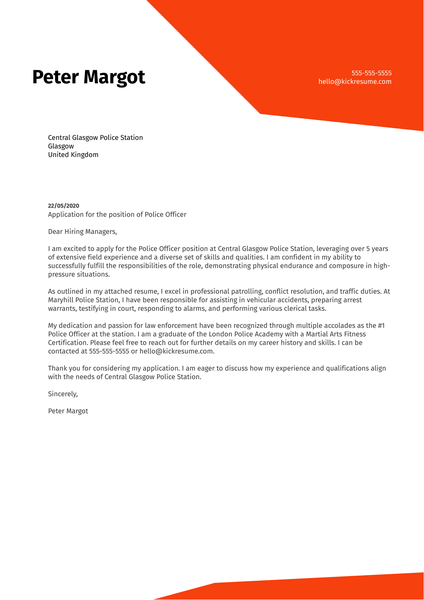
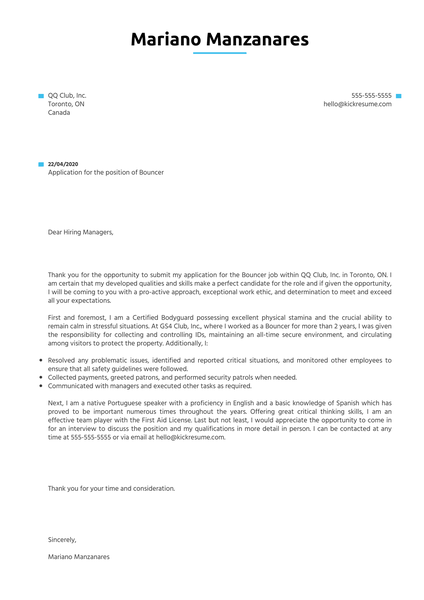
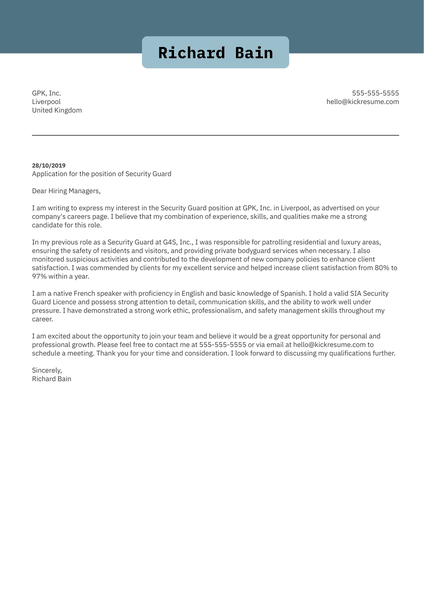
![How to Write a Professional Resume Summary? [+Examples]](https://d2xe0iugdha6pz.cloudfront.net/article-small-images/i-Profile.svg)
![How to Put Your Education on a Resume? [+Examples]](https://d2xe0iugdha6pz.cloudfront.net/article-small-images/i-Collage-Universities.svg)
![How to Describe Your Work Experience on a Resume? [+Examples]](https://d2xe0iugdha6pz.cloudfront.net/article-small-images/Experience.svg)


